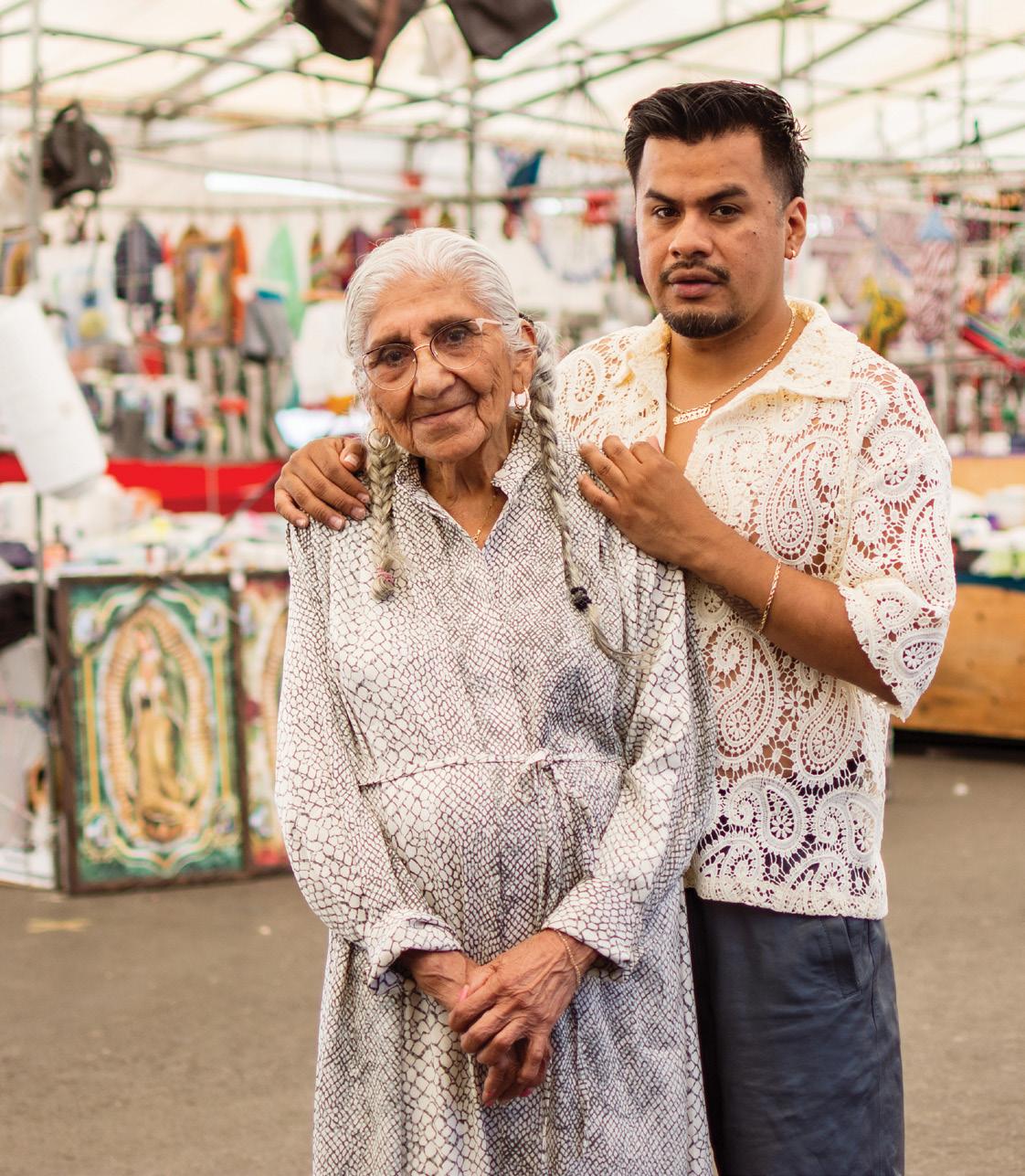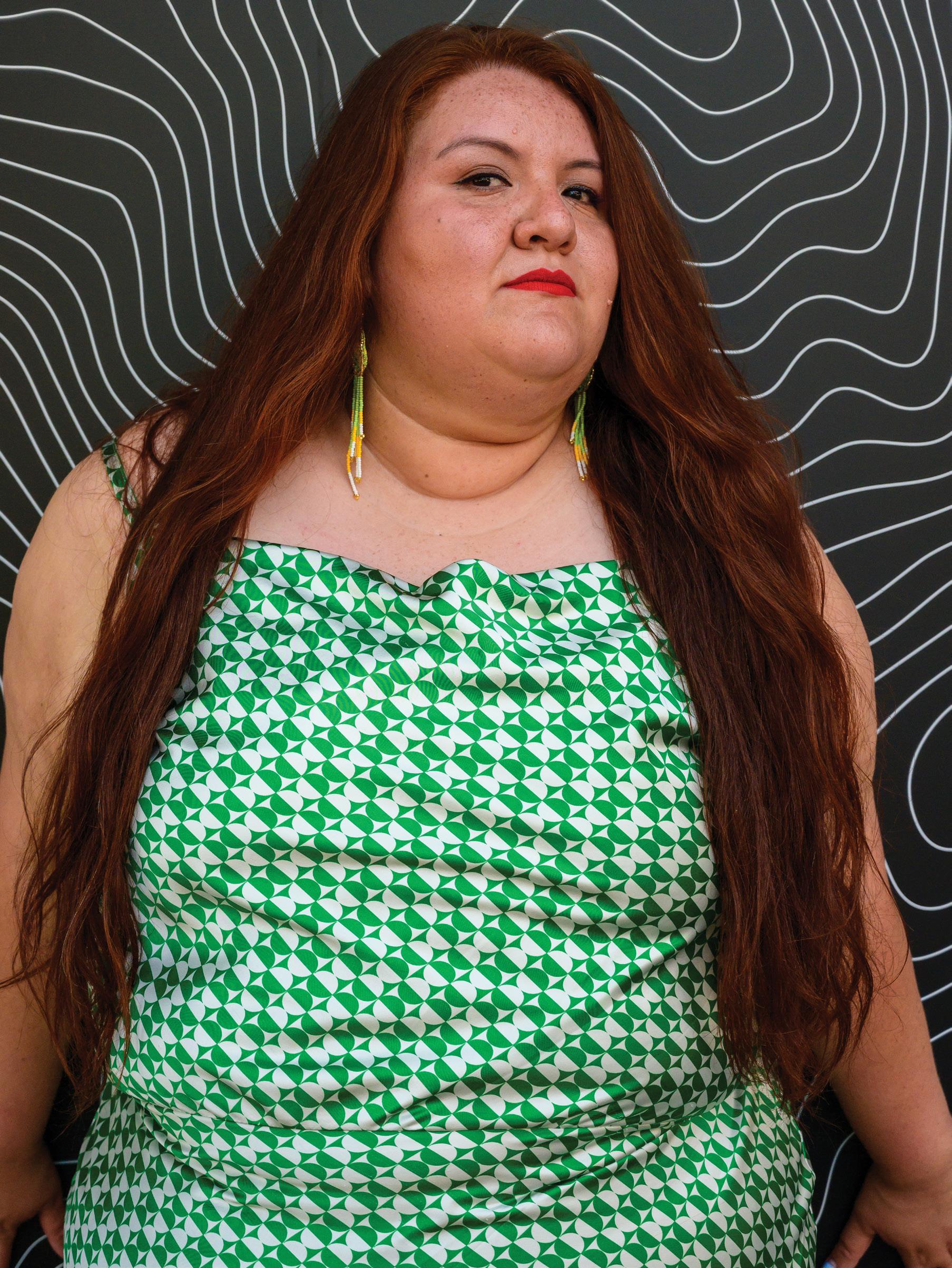
2 minute read
ABUELA GETS A FEVER
At her age, her body feels it can’t deal
She calls me
Advertisement
I’m at a bar
Trying to distract myself from the responsibilities of being a caretaker
I know it took a lot for her to dial
Abuela swallows her aches
Because she is mindful that I have my own life to live
“Hey, I got to go home,” I tell my friends
At home, she is in bed
“Sorry,” she says
She doesn’t know it’s an honor. It’s my duty.
Her body is shirking. I rub vapor rub on her back, her pecho, her arms, her legs
“You are a good son,” me dice
But it’s not about goodness
It’s about time
How fast everything is moving
It’s about the now
About savoring
It’s life
This moment
Yo, rubbing vapor rub on this viejita that loves me
I touch her skin, memorizing its texture performances with institutions like MACLA and San Francisco’s Youth Speaks nonprofits.
Very few people get the blessing of knowing a love so sacred.
When the May Day marches took San Jose by storm in 2006 as the largest political demonstration in the city’s history, Reyes saw it all firsthand.
“A lot was happening in the country,” he says, recounting his high school years. “This [was] the beginning [of when] a lot of people were coming out as undocumented…they [would] go on TV, tell their stories, then they get pixelated, or they alter their voices.” He was particularly compelled by the younger people galvanizing the movement, coming together to amplify their stories in solidarity.
Reyes’s first collection of poetry, For Colored Boys Who Speak Softly , published in 2009 with the support of musical legend Carlos Santana, serves as an archive of this emotionally charged period in Reyes’s life. And while he admits the collection would be received differently now due to its outdated language, publishing it ultimately convinced him to pursue his passion as a storyteller.
In the beginning, Reyes didn’t mind being called an “undocumented writer,” but as he got older, he felt the need for distinction. “My work, yes, deals with that theme but it’s more about a human element,” he states. “I always tell people, I’m a writer that happens to be undocumented. That informs the work, but it does not define how I view myself.”
When Reyes was confronted with the pandemic, he chose to pivot from his career in LA and move back home to San Jose to be with his grandmother.
Among his many projects since then, Reyes takes extra pride in the creation of the Yosi Book Club in 2020, promoting a variety of Latinx authors and the premiere of his renowned one-man show Prieto in 2022—an adaptation of Reyes’s own coming-ofage story in the Bay. For him, the writing process for all his work, including Prieto, is intimate and cathartic. “What I’m living is what I’m writing,” he says. “It forces me to be a little more honest and confront things that I don’t want to.”
When he leads his creative writing workshops, it can be especially nuanced for Reyes. “I work with a lot of college engagement, first generation college students. Most of the students have left their families [so] I think that’s why we connect,” Reyes explains. He recognizes a familiar resilience in his students—a desire for economic stability that could potentially trickle down and help their family, which Reyes knows all too well. “They know this [part’s] temporary and it’s gonna pay off in the long run. We want to thrive, we don’t want to [just] survive.”
Wherever Reyes is involved, it is guaranteed that he will be outspoken and authentic, willing to share the spotlight with anyone with a story to tell. Undoubtedly, Reyes will bring this and more as he sets the stage as MACLA’s newest addition. He additionally anticipates Prieto on tour this fall, premiering in Chicago and Miami. C











